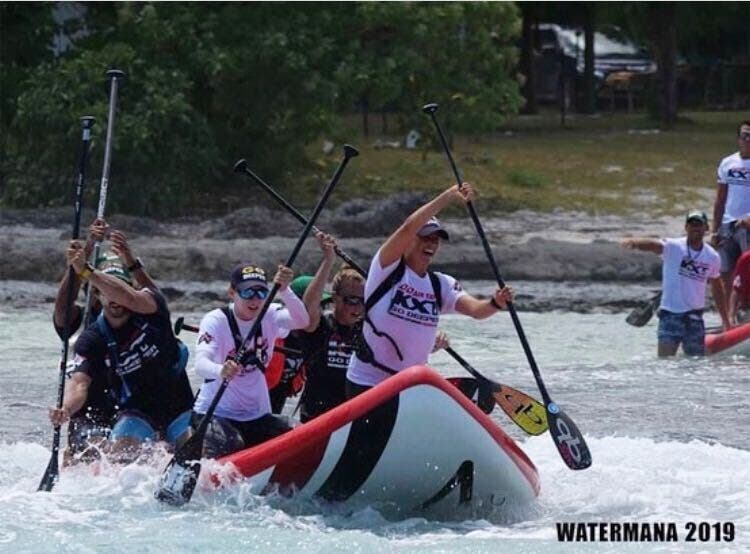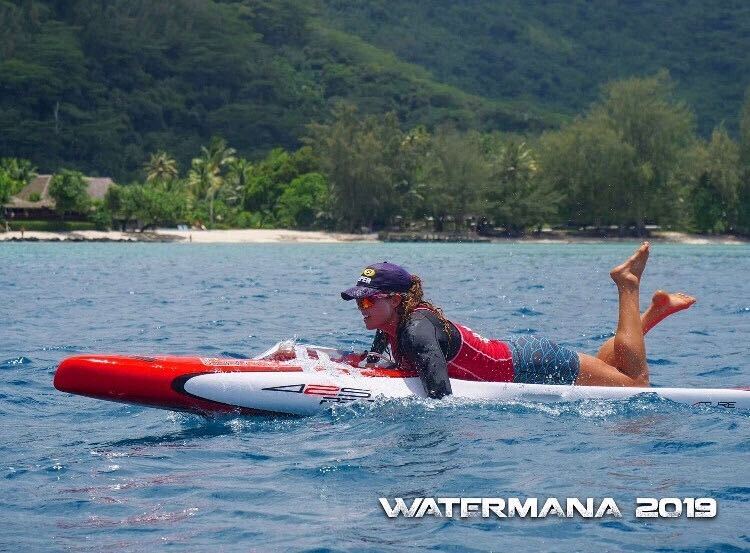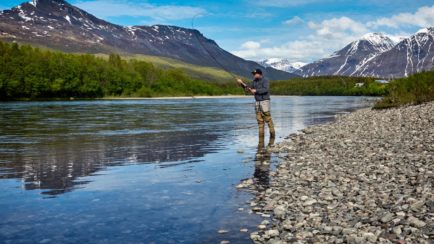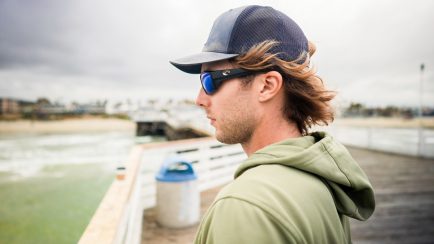Adventure racing, ever heard of it? Jessica Rocheleau's life is an epic one. This week's Happy Hour guest has previously chatted with Graham on Instagram to discuss her background as a triathlete. Now she's back with more, and this time she's got new stories to share. Tune in on Instagram here and read along as Jess dives into her most recent adventures.

G: So Jess, for those who may not have tuned in for your last visit on here, would you mind giving a short background for them?
J: Yeah of course. So I have a background in swimming, which eventually led me to triathlon. That wasn't for me so I went to Xterra (off-road tri), competed in Maui World Championships and now I'm getting more into adventure racing. But on the side throughout all those years, about 5 years now I've been doing adventure racing in Tahiti. So that differs from the adventure racing here in the US but it also kind of intertwines as well.
G: Very cool, well we have a lot to get into. So even based on that short description you gave of your background its easy to see those small steps towards adventure racing. And with everything going on with coronavirus people are looking for new content and trying new challenges like adventure-type races or trips. So why don't you get into the details of your first event so our viewers can get a better idea of what it is?
J: So it all started with one of my friends who was really big in the paddleboarding world. So through a paddling event, she won tickets to the Waterman Tihiti Tour and she invited me. I had never really taken part in stand up paddling and this race was an adventure race that revolved around water. So she brought me to Bora Bora, which is kind of wild when you think about it because you think of it as a place to lay on the beach and relax but the island vibe for this event was intense. This event allowed me to realize what I was capable of, both mentally and physically. The first challenge in Bora Bora was navigation around the entire island which is about 50k and I had never been on a paddleboard before so I was like alright here we go! But yeah its really cool because when you're there and you're surrounded by that many people it makes you feel like you can do it.
G: So this whole week I've been thinking about this live and writing up questions for you on Adventure Racing. What type of athletes show up to these things? Average people? Pro athletes? A mix?
J: Yeah its something that's super desirable for anybody and once they realize that they can actually do it and they're given the opportunity to be brave, then everybody wants to try it. Because when you get there, you don't know what you're doing. The human psychology of it is tested. You get there, not knowing what the race is and once you get there there's no way you're not going to do it. I think celebrities do them too, there have been some really big names in Waterman Tahiti Tour, they're big Australian Ironmen athletes, but I'm not sure this audience would know any of them.
G: Yeah well for what it's worth, I'm sure these are big in the tri-community. Makes sense considering your background and the multi-discipline training.
J: But what's cool is that this event doesn't really get televised and I don't think people were super aware of adventure racing until Eco-Challenge Fiji was on amazon. So even for me, I knew about the AR scene internationally but not so much here in the US. But there are teams, even here in San Diego that train for it every single weekend.

G: So speaking of the teams, how are they built? How do you find a team?
J: Well I think in the US there have only been 3 or 4 women who have competed in the Waterman Tahiti Tour but if you're looking into the Eco-Challenge, you can post on their page and they'll read your profile to see if you're a good fit. But basically, every team has to have a woman which I think is really awesome. It gives that balance both physically and mentally because I think men and women have different strengths. You also have to have different expertise; someone good at mountaineering, rock climbing, good on water, etc.
G: That's really cool. So I noticed that all the events that I've seen are generally in tropical places. Is that how it always is?
J: Well I've only experienced the super tropical side of racing. You're always in the water and can cool off unless you're hiking up a mountain of course. But this year, in Patagonia, it's going to be totally different. Whereas last year it was in Fiji so you have to have that super adaptable personality and if you cant, then adventure racing isn't for you.
G: It's cool that the competition changes and evolves. So, thinking about getting a team ready for these events, how do you train and go about prepping for something that you essentially go into blindly?
J: So the events I have gone too, it's almost the same group that goes every time with a few different people. But each time I've done the event in Tahiti, the event coordinator never lets you get comfortable which I think is the main foundation. There's no comfort at all. If you're with a group for one activity he'll totally shift it so you have to be with somebody else. So in that way, Waterman Tahiti is different versus teams here in the US who are with the same group the whole time. So I guess if you went to go find a team you'd want to be really comfortable with those people. You spend so much time with them that you'd want to build relationships and get to know them better.
G: And especially trust. You want people you can trust, support and work with because it can be potentially dangerous and that's where a whole other aspect comes into play.
J: You get to spend so much time with these people so the ones that win, really know each other and their skills best. They're not showing up to this mountain and climbing it for the first time. They've put in the repetition and they know what to expect, they have that structure built already. So with that adventure racing is more of a lifestyle. You can do whatever you want and train however you want, there's no thinking, you just do.
G: I imagine you'd just want to be a well-rounded athlete. So tell us what you do to train and get ready for these things. & for those tuning in be sure to follow Jess on Instagram, she's got some great fitness tips and trick on there.
J: Well I'll start by saying I've been called crazy pretty much my entire life for what I like to do. It's more that I mentally train to put myself in situations. One day I'll be like I'm gonna go climb this mountain by myself, so getting to the top is the training for that day. Lifting is also huge, I spend a lot of time in the gym but I think that carries over into everything you do. So if you have that strong foundation you build the confidence to put yourself in any situation. it's a ladder that you build off of. But I do spend about 2 to 3 hours a day doing a variety of things. Paddling, swimming, lifting, yoga, running, and then some cycling.
G: Nice, that's a very balanced pallet. For me, it's just bikes. I spend 15 hours a week on my bike.
J: But it's cool because before you were a baseball player and you made that transition. Anybody can make that transition but it's all about having the right mindset to do it.
G: Yes very true. Well, my next question, what are some of the common athlete types that you see switching over to this sport?
J: I think you get a variety of different people. One of the best parts about going to all these events is getting to know the stories of all these athletes because you'll get people that are World Champions in Standup paddle!. There was this one woman, 55 years old, a mother, she comes to the events. Its just people who have an open mind and want to self-discover a little bit. Because when you're out there you are alone at some points. The growth, confidence, and feelings you get being out there are incomparable. So its people that want a little bit more than the normal athlete, I think that's what brings those people to those events.
G: With that in mind are there people who are just there to finish? those that aren't too concerned with the fastest known time, or getting on the podium, just ones that want to raise their fists and say they did it as they cross the finish line?
J: Yeah actually the people that get the most respect at these events are the people that have that attitude. You'll get people who come from all different countries, France, Australia, they get there and have been the best athlete at their sport, they come to the event and find themselves dropping out of the event because they're not winning. That's the huge message behind it too, that you don't have to win, it's more that you do it for you but placing high is that extra reward.
G: Yeah I think there are a lot of burnt-out athletes lately, finding that they may or may not love what they're doing because they don't have an event to train for. Other's are finding new challenges and rediscovering why they truly love their activity.
J: Yeah I mean quarantine sucked but a lot of good came out of it too.
G: A lot of people got outside more because of it which is definitely a plus.
J: Absolutely!
G: So since the last time we spoke, you had some really big running weeks. Want to talk about some of those?
J: Yeah I'm actually really really proud of it because I came from a background where I was injured from running for about 3 years. So I finally got my body right, and it was my 27th birthday week and I didn't necessarily intend to have the biggest running week of my life but it just so happened to be that way. I went to Angeles National Forest and I summited Mt. Baldy and Mt. Kukamundo solo, all by myself. So just those two hikes were about 27 miles and 10,000 ft of elevation over 2 days. So throughout the week, I was like I can keep going so I ended up doing 70 miles at 13k elevation.
G: That's impressive!
J: Yeah I was pretty beat after but its weeks like that where I knew I could do so much more, it's literally all in your head.
G: There's so much in sports that's totally mental.
J: I'm really passionate about this subject because I think its really important. Trained athletes go through almost the same training structure every week, with a little bit of build but there's not one thing in there that's a big surprise. I like the change because its fun and keeps it interesting. There's so much you can do.
G: Alright well as we move to the end of this, even though its still quarantine and scheduling events isn't really a sure thing right now, do you have anything your training for or looking at the horizon for?
J: I've really been thinking about the Tahoe 200. That is on my mind. But at the end of this month, I'm going to Tahiti and Ill be there for a couple of months. I'll do some of their biggest hikes and summits there. I also have in mind to do the Bear 100 its in Utah. Aside from events I'd like to go to the different states and summit their tallest peak.
G: Okay cool!! So to wrap up tell us a bit about the Tahoe 200.
J: It's kind of like a circumnavigation around Tahoe. It's through the rim trail and it goes around the entire lake. Its 200 miles, not 200k. You go at your own pace so you have a support team and you basically just run until you stop. Rest, then run until you can't again.
G: That's intense. But what a great place to go suffer.
J: I think its in March too so the temperature is pretty mild.
G: Well Jess, anything you want to plug and leave us with?
J: Yeah definitely, I mentioned it when I did the Instagram takeover for you guys but I work with a company called Rise Athletes, we mentor youth athletes in the mindset aspect of sports, its a great way to connect and build a community. Rickaroons, if you haven't heard of them, they're a healthy cookie brand locally made in San Diego.
Other than that I just got a pair of new Costas from you guys and they are the best!
Be sure to follow Jess on Instagram too and watch her take on all your wild adventures.





